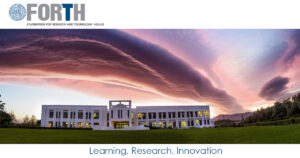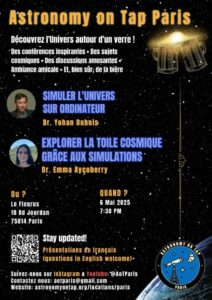Date: May 23rd 2019, 11am
Speaker: Jean-Baptise Bayle (APC)
Title: Space-based Detection of Gravitational Waves with LISA: Opening the Low-Frequency Part of the Gravitational Spectrum [slides]
Room: Cassini
Abstract
Einstein’s theory of General Relativity offers a powerful picture of the world, where the gravitational force is only the consequence of the curvature of spacetime. Gravitational waves are very tiny ripples in the fabric of spacetime, propagating at the speed of light. They do not interact much with the matter encountered on their way, making them very good messengers to probe astrophysical events at a distance... but also very difficult to detect. Scientists have looked for gravitational waves on Earth for more than 40 years and have developed incredibly precise instruments. In 2015, the first direct detection of such waves was announced by the LIGO and Virgo community: gravitational astronomy had opened a new observational window on the distant Universe. Unfortunately the limited sensitivities of such ground-based detectors does not enable the observation of the most massive object.
In two decades, the Laser Interferometer Space Antenna (LISA) mission will join the network of ground detectors. LISA aims to measure gravitational waves in the millihertz range, to help answer numerous astrophysical, cosmological and theoretical questions. Three spacecraft will orbit the Sun in a nearly equilateral triangular formation, with arm lengths of about 2.5 million kilometers. Each spacecraft will host two spacetime probes. Laser beams, exchanged between the spacecraft, will be reflected upon the probes and then made to interfere, in order to detect passing gravitational waves.
During this conversation, I will briefly recap how gravitational waves arise from Einstein equations, and present the astrophysical and cosmological sources expected throughout the gravitational spectrum. I will then describe the main detection principles, from ground-based interferometry to pulsar timing. I will then focus on the LISA mission, and discuss my PhD work on data pre-processing and instrumental modeling.



